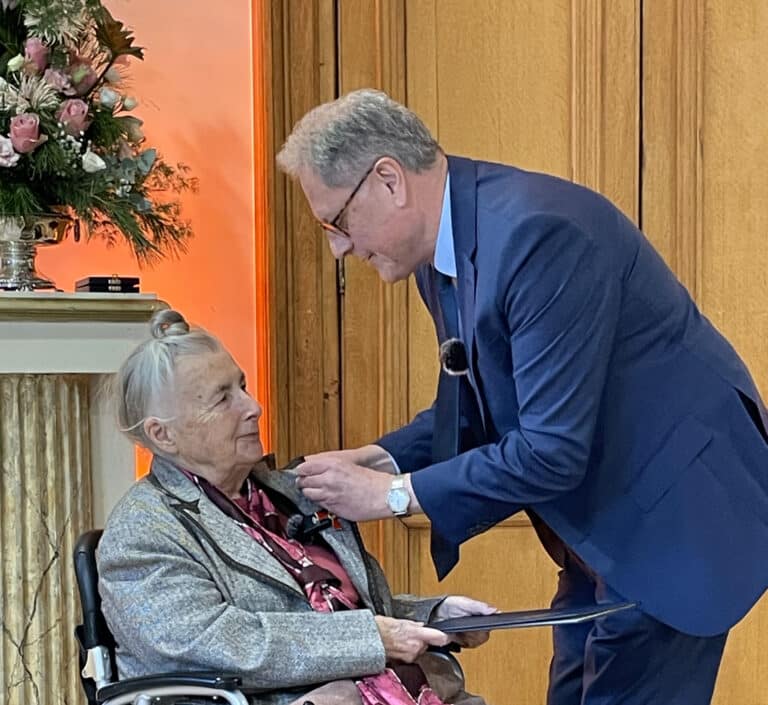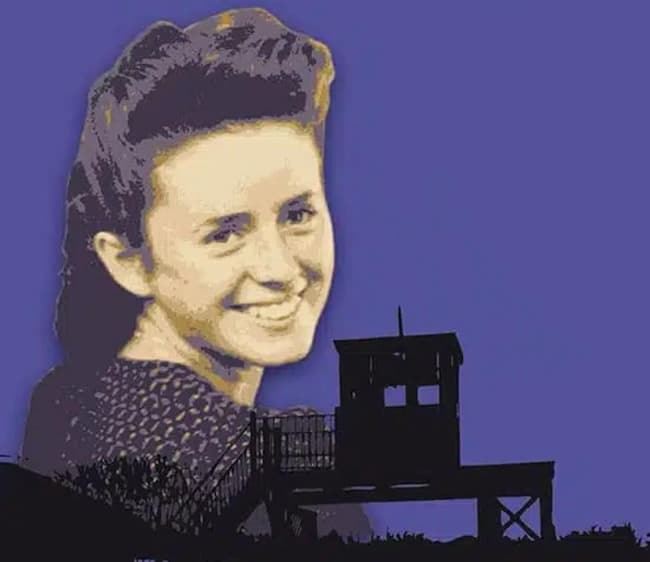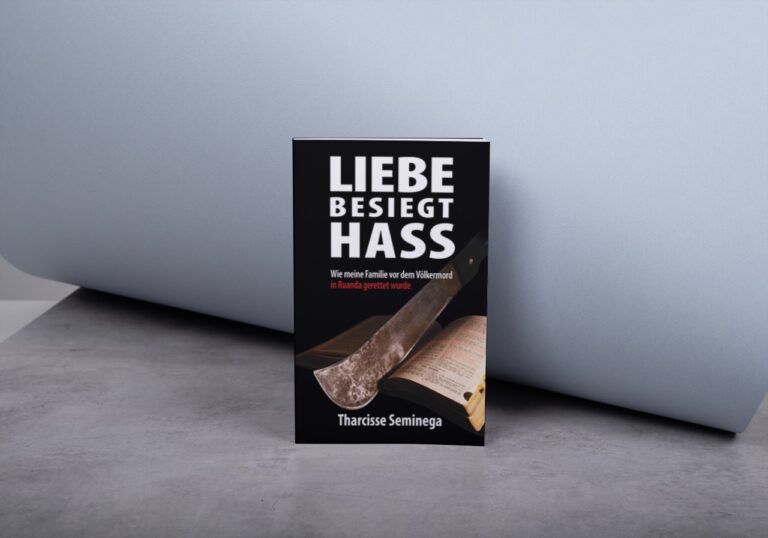
Eugenie grew up to be a lively young lady. She liked to go dancing on Saturday evenings, and Emma had to go along as her chaperone. She sat the entire evening waiting for Eugenie to exhaust all her dancing partners. A young man named Adolphe Arnold often sat at a nearby table patiently doing the same job of chaperone for his sister. Adolphe and Emma got talking. She found out that he also worked in a textile mill. Both had so many things in common that they decided to join their lives together. Adolphe went up to Bergenbach to ask for Emma’s hand. He got an icy reception. A poor boy from a poor family with no fields or cattle, he could not know what it meant to work. Art design was not a real job; moreover, he looked so scrawny. Marie could not refuse or interfere. Emma was almost 26. Still, her cutting remarks made life stressful not only for Emma but for the whole family.
As the wedding date drew closer, Marie and her future son-in-law had a heated argument. She wanted to make a large banquet with money she did not have—she would borrow it, she decided. Adolphe absolutely refused. He was not a man to put up a front. Why pretend to have money when the family had no means? He only had a week’s salary, and as a dowry, Emma only received back three days’ salary from her angry mother. To appease his mother-in-law, Adolphe agreed to pay the high price of a special marriage ceremony at the pilgrim chapel of Oderen.
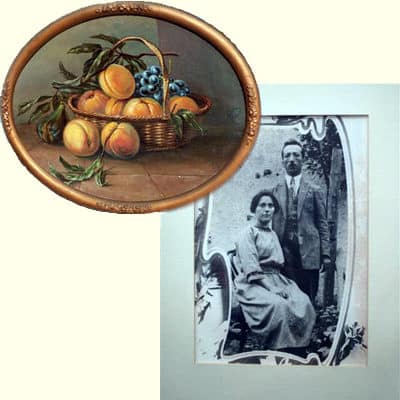
Even with both their salaries, the Arnolds could barely afford to rent a tiny room and kitchen in the village of Oderen. The elderly landlady gave them an old bed and a table. They sat on boxes instead of chairs. After four years of saving, they moved to a regular company-owned cottage house names Blättmat belonging to the Wesserling factory where Adolphe worked. They decided that the nest was ready to welcome children.
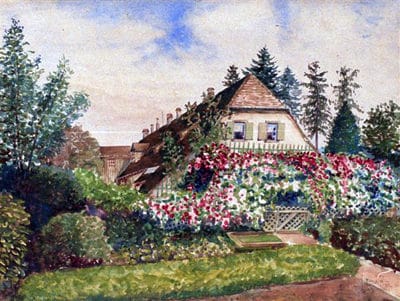
The winter of 1928-29 was so frigid that all the plumbing, fountains, and rivers froze over. It took an axe to break the thick ice in order to get water. Emma was pregnant and went down to the river holding the bucket in front of her. She suddenly slipped and fell forward, hitting her belly full force. The couple mourned the tragic loss of their baby boy.
Almost two years later, Emma was ready to deliver her second baby at home. She spent more than a day in heavy labor and was panting from exhaustion. The midwife despaired and told Adolphe to get the doctor, who rushed in and found Emma in distress. He took Adolphe aside and put the urgent question to him: Shall I save your wife or your child? In that frantic moment, he told the doctor to save Emma.
The doctor laid the limp bluish baby aside on a cushion, and turned his attention to Emma. Eugenie did what she could to help the midwife and doctor save her sister, but when she saw the newborn lying motionless, she cried out for the doctor. He quickly took the baby by her feet, head down, and gave her a slap. A loud wail brought them all relief, and the doctor turned back to Emma.
The baby would be named Simone, but she would also be under the Virgin Mary’s protection. Marie Simone was born on August 17, after two days of labor pains. Eugenie, by then a widow, lived with the Arnolds and served as nurse for mother and child. Marie came down from Bergenbach to Wesserling to give Eugenie her expert herbal advice for Emma and the baby. Eugenie helped them toward a quick recovery, and eight days later Emma brought her new daughter to church to be baptized. The midwife, so Adolphe decided, carried the baby to the altar and would get the place of honor at the family meal.
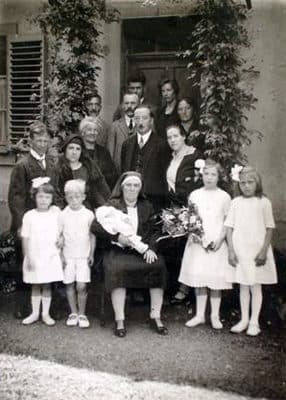
Religion occupied an important place in the Arnold home but they also believed in personal responsibility. The Arnolds, grateful for the life of mother and infant, decided not to risk Emma’s life again in childbirth. Simone would be an only child, even though as devout Catholics, they should have avoided contraception. Emma applied her sewing skills, planted a vegetable garden, and did canning to stretch their scant earnings. She went regularly to Bergenbach to look after her mother and Germain, who was the only child left at home.
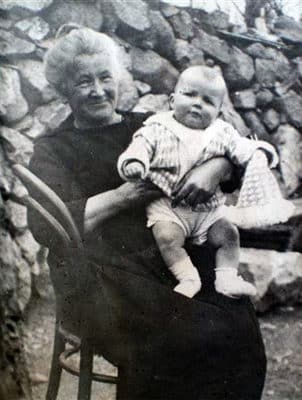
In the Big City
At the Wesserling factory where Adolphe worked as an art consultant, the supervisors spoke only French, even if they knew how to speak Alsatian. In this way they marked themselves as part of “high society” and kept distance from the language of the common workers. Emma wanted to bring honor to her husband and copied pages and pages of French every day. Just when life seemed settled and secure, the region erupted in social and political turmoil. In the faltering economy, Adolphe’s mill would be closed and sold. Another textile manufacturer in Mulhouse offered Adolphe a job. He spent a long year commuting each day, only catching a glimpse of his sleeping daughter before he took the early train and again late at night when he came home. Finally in 1933 the mill offered Adolphe an apartment in Mulhouse-Dornach.
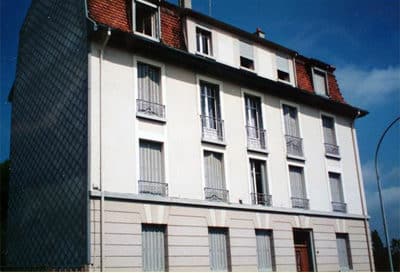
The Arnolds did not find city life appealing at all. Their little dog Zita was certainly not happy about the move. Apartment life was such a drastic change, and so was Adolphe’s work. He needed to wear a fresh white shirt every day, something they could not afford to buy. So Emma bought fabric remnants from the mill and made Adolphe’s shirts.
On weekends they often returned to their beloved mountains and visited Adolphe’s stepfather, Paul Arnold, in Krüth. By himself he was raising the two children Adolphe’s sister had left behind at her death. They also went up to Bergenbach to help on the farm. Eugenie worked as a governess in Alsace and Valentine was too much of a lady to do farm work.
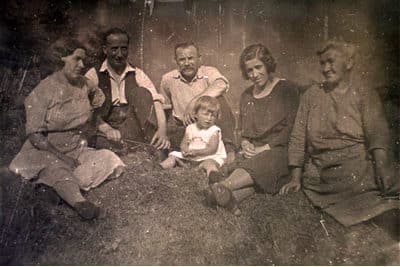
The social and political turmoil posed a threat to life and livelihood. Germany began her military build-up and France responded by shoring up her defenses along the Maginot line, which had been erected along the Rhine River to deflect a direct German assault and to protect Alsace and Lorraine.
Conversion and Controversies
Inside the Arnold home a different kind of turmoil was building. Adolphe and Emma had seen a priest misbehaving, which so disturbed Emma that she refused to attend the church where that priest presided. At about the same time, two men from Basel, Switzerland, called at her door and presented her some booklets about the Bible. She bought herself a Bible to check the citations and, despite Adolphe’s displeasure, she ordered more booklets. Emma had always put Adolphe’s welfare and happiness first, but convinced that she had found Bible truth, she openly defied Adolphe’s insistence that she quit reading literature from those Bibelforscher (Bible Students), also called Jehovah’s Witnesses. No one, not even her husband, could interfere with her rights and her religious devotion. Adolphe lapsed into silence, speaking only when necessary. He started chain smoking over the breach in their marital harmony.
Emma visited her neighbors to share her newfound faith. She read Bible passages to seven-year-old Simone. On her own, Simone wanted to stop attending Mass, but Emma told her to respect her father and go along with him to church without complaining. Simone soon began asking her father religious questions he could not answer. After nearly a year, Adolphe gave up taking Simone to save himself from “that ordeal.” He decided to try another strategy and ordered a Bibelforscher book called Creation. He would expose the teaching as heresy and nonsense. But what he read convinced him that Emma was right. Emma was first to be baptized as one of Jehovah’s Witnesses, in Basel in 1938. Adolphe’s baptism took place the following year. In the meantime, war clouds gathered and Adolphe received his draft notice.
During the Sudeten conflict, Adolphe, who was about 40 years old, left behind his wife and daughter, but within a short time he returned home. He told Emma that if he were to be drafted again, he would refuse the call-up. They both knew that if a shooting war broke out, Adolphe’s decision of conscience could mean his life. Emma backed his conviction with a strong faith of her own.
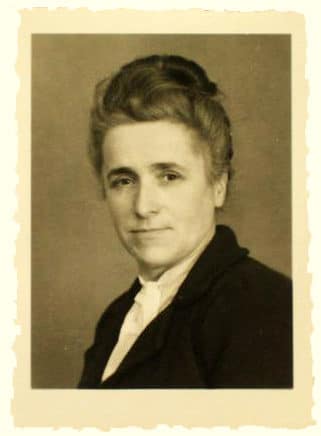
With fear of war hanging in the air, the Arnolds wanted to bring their respective families a biblical message of hope. They first went to Bergenbach, where the whole family gathered for a family meal. Their visit prompted a chorus of ugly words. Only Remy kept quiet and went about his daily chores. Adolphe escaped with Simone and left Emma to deal with her indignant siblings and her mother’s burning rage. He headed down to Krüth to present a Bible to his stepfather, Paul Arnold. The Bible laid on the table not even one minute before his stepfather, whom he deeply respected, flung it out the window and threw Adolphe physically out of the house. Both sides of the family then cast them out on the same day. Even Eugenie, who was living in Mulhouse, refused to see her renegade sister. She would only visit with her niece Simone after school.
During those unsettled pre-war years, Emma walked far and wide despite her arthritic feet, delivering spiritual and material help. Her best and most eager student was her own Simone, who was taught her father’s high moral standards and his practical sense. She had lessons in sewing, knitting, cooking, and art and music. By her mother’s side she also learned to be a skillful Bible teacher. The Arnolds took an active part in the religious activities of the Jehovah’s Witness congregation in Mulhouse. Just before war broke out, the French government imposed a ban on their religion.
